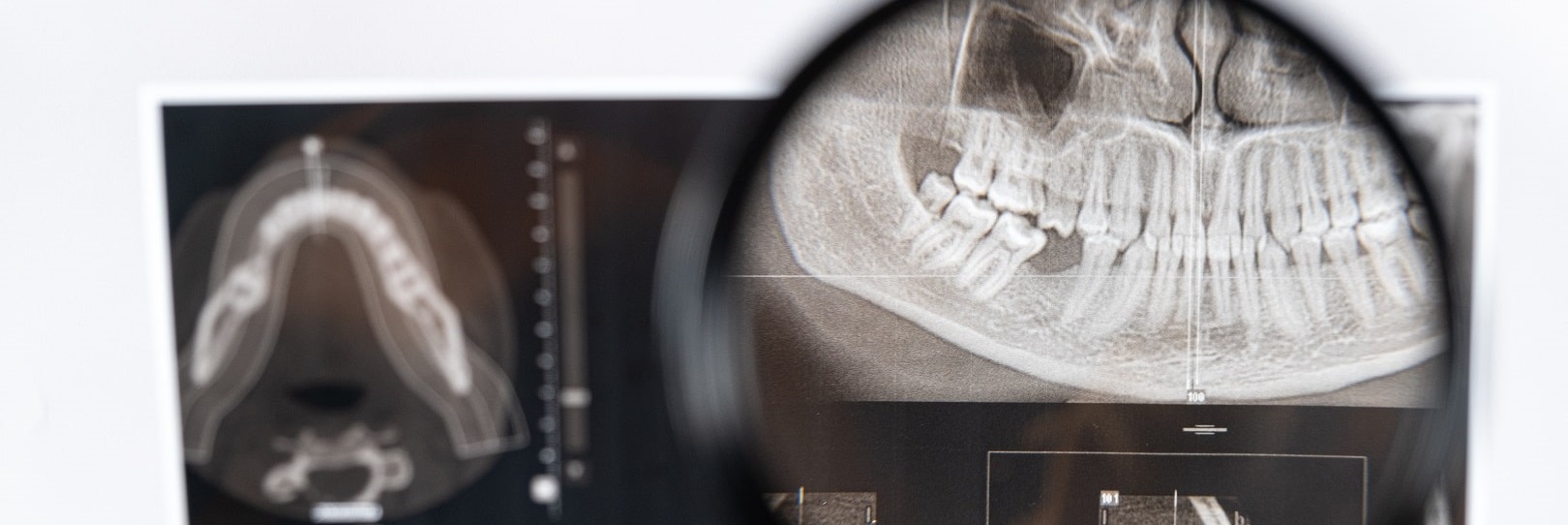Tooth Clenching - Jaw Joint Disorders
The number of people with pain in the joint area or dysfunction in the joint is much higher than thought.
The number of people with pain in the joint area or dysfunction in the joint is much higher than thought. It causes the appearance of various clinical manifestations in changes in neighbouring structures outside the joint and systemic diseases. Sometimes, pain and loss of function may be observed when muscle-related disorders are seen.

Symptoms of TMJ disorders
Tinnitus
Squeaking, clicking, clacking sound when opening and closing your mouth
Limit opening or locking your jaw
Pain or stiffness in the neck
Dizziness, fainting
Pain when chewing
Pain in the face
Pain when closing teeth on top of each other
Fatigue in the jaw when chewing
Numbness in the hands
Difficulty in stretching
Displacement of the disc or degenerative changes in the condyle and disc may also occur in the TMJ. Differences in clinical symptoms in the TMJ cannot always be explained as disc displacement. The function and dysfunction of the masticatory muscles should also be taken into account.
Factors that cause temporomandibular joint disorders
Direct trauma to the jaws (as a result of an accident or impact),
Iatrogenic(physician-induced) injuries that occur during dental or medical treatment,
Developmental defects of the joint(hypoplasia, etc.),
Degenerative joint disorders, osteoarthritis, arthrosis,
Autoimmune diseases, rheumatoid arthritis, lupus,
Parafunctional jaw activities: squeaking, bruxism,
Orofacial movement disorders,
Behavioural disorders: stress, depression, somatization,
Major incompatibilities in jaw relationships,
Major incompatibilities in dental occlusion,
Unknown factors.
How do I know if I have TMJ discomfort?
Have you had any unusual pain?
When you open and close your mouth, does it make a clicking, or tapping sound?
Do you have any pain in these areas? Jaw joints, lower jaw, upper jaw, neck, back of your head, forehead, temples.
Is there congestion, pressure, or excessive dirt secretion in your ear?
Do sounds such as ringing, rumbling occur in your ear?
Have you felt dizzy before?
Do you get chills or numbness in your hands, fingers or arms?
Do you always get tired easily or have you thought that you have chronic fatigue?
Do your teeth marks form on the side where your tongue is?
Does your tongue get between your teeth when you swallow Decently?
Do you have difficulty chewing food?
Have you lost a tooth in the back area?
Do you clench your teeth at night or all day long?
Do you grind your teeth while sleeping at night? (Ask your family)
Have you ever woken up with a toothache?
Have you experienced a neck injury before?
Have you ever been hit in the jaw, face or head before?
Has it happened that the medications have not affected your pain for a long time?
Do your symptoms get worse during chewing?
Does it hurt when you open and close your mouth while putting your fingers inside your ears and pressing?
Does your jaw shift to the right or left when you open your mouth?
When you open your mouth, can your first 3 fingers enter vertically?
Do you have asymmetry on your face?
If the answer to many of these questions is "Yes", you may have disease. You need to consult with your dentist.
Methods by which you can check your jaw joint
Put your fingers in your ears, open and close your mouth several times. Do you feel clicking sounds?
Stand in front of the mirror and slowly open and close your mouth. Is there a shift to the other side or pain when opening?
Slide your jaw from one side to the other and note if there is pain.
Check the Sensitivity of Your Muscles
Place your fingers on the area where your joints are, which are slightly in front of your ears, apply pressure to your cheek area.
If you feel any discomfort or pain in your jaw joint, consult a dentist who specializes in TMJ.
TMJ treatment
Treatment of symptoms
Treatment of the underlying cause
Treatment of predisposing factors
Treatment of pathological effects
Treatment options
Patient education and preventive treatment
Physiotherapy
Medication
Splint treatment (Night Guards, NTI- treatment)
Intra-articular injections (Steroid, Na Hyaluronate, etc.) and lavage
Manipulation under general anaesthesia
Surgery (arthroscopic surgery, arthrocentesis, discectomy, disc repair, etc.)
Further treatment (rheumatological, endocrinological, otolaryngological complaints, psychiatric supportive therapy, etc.)



